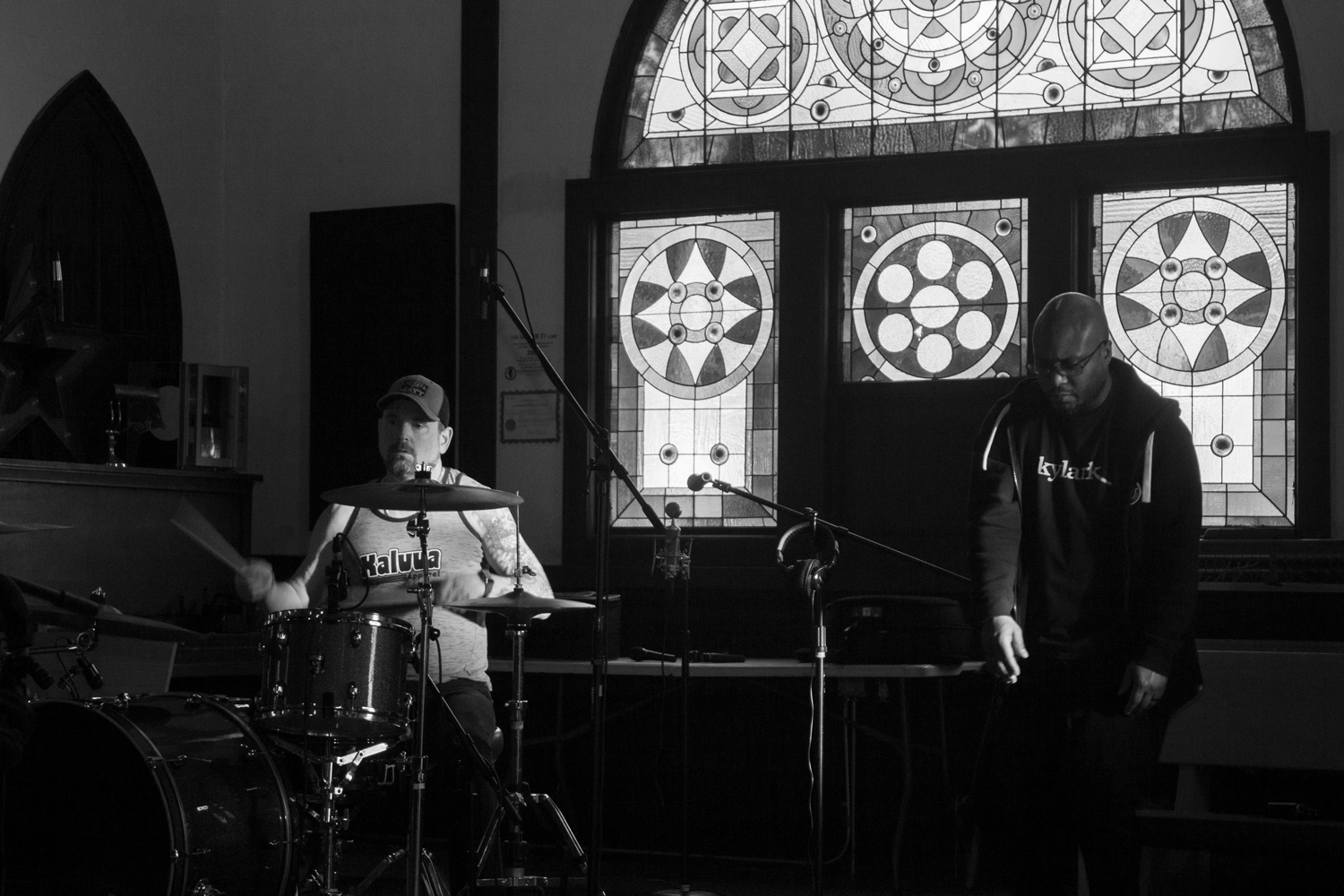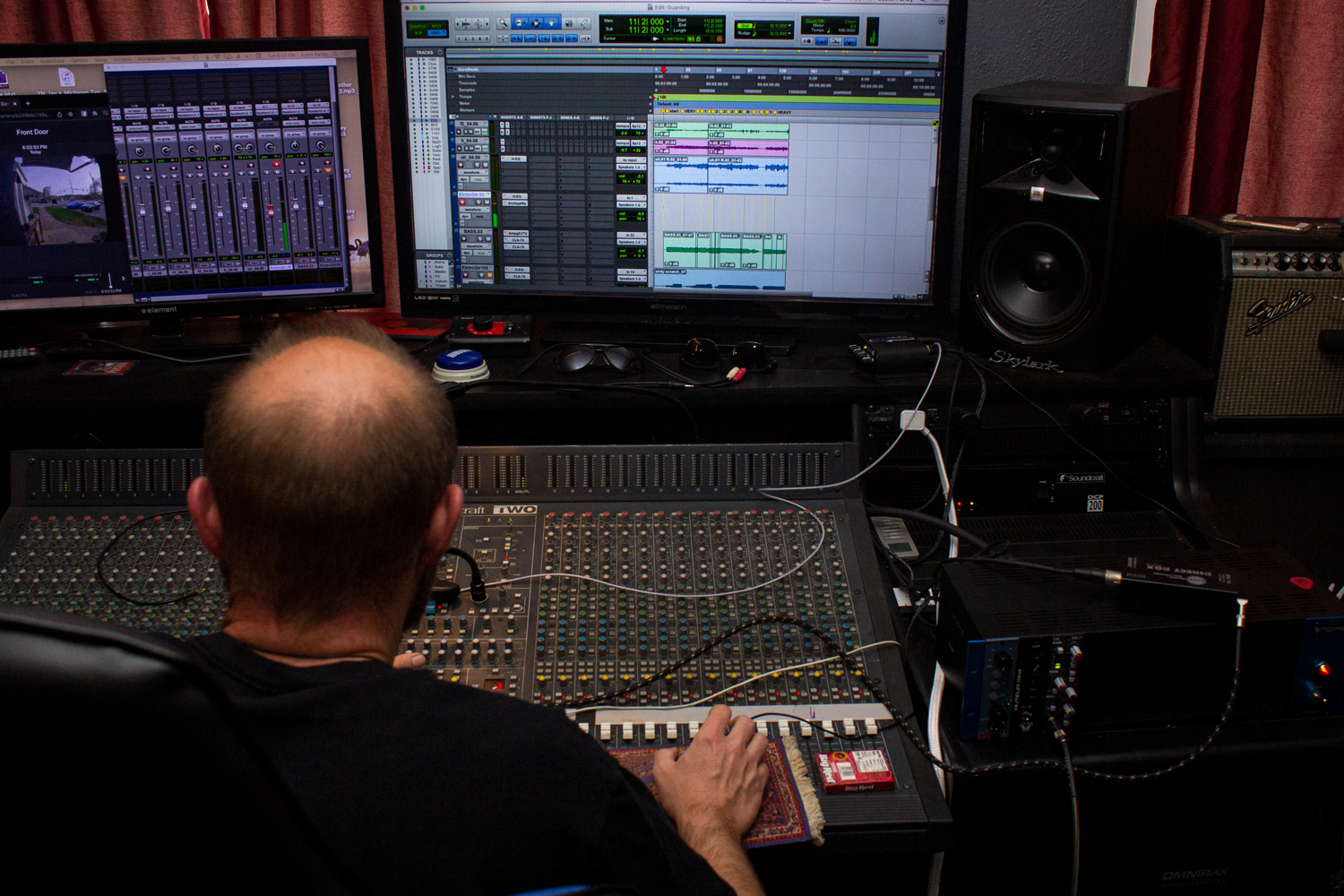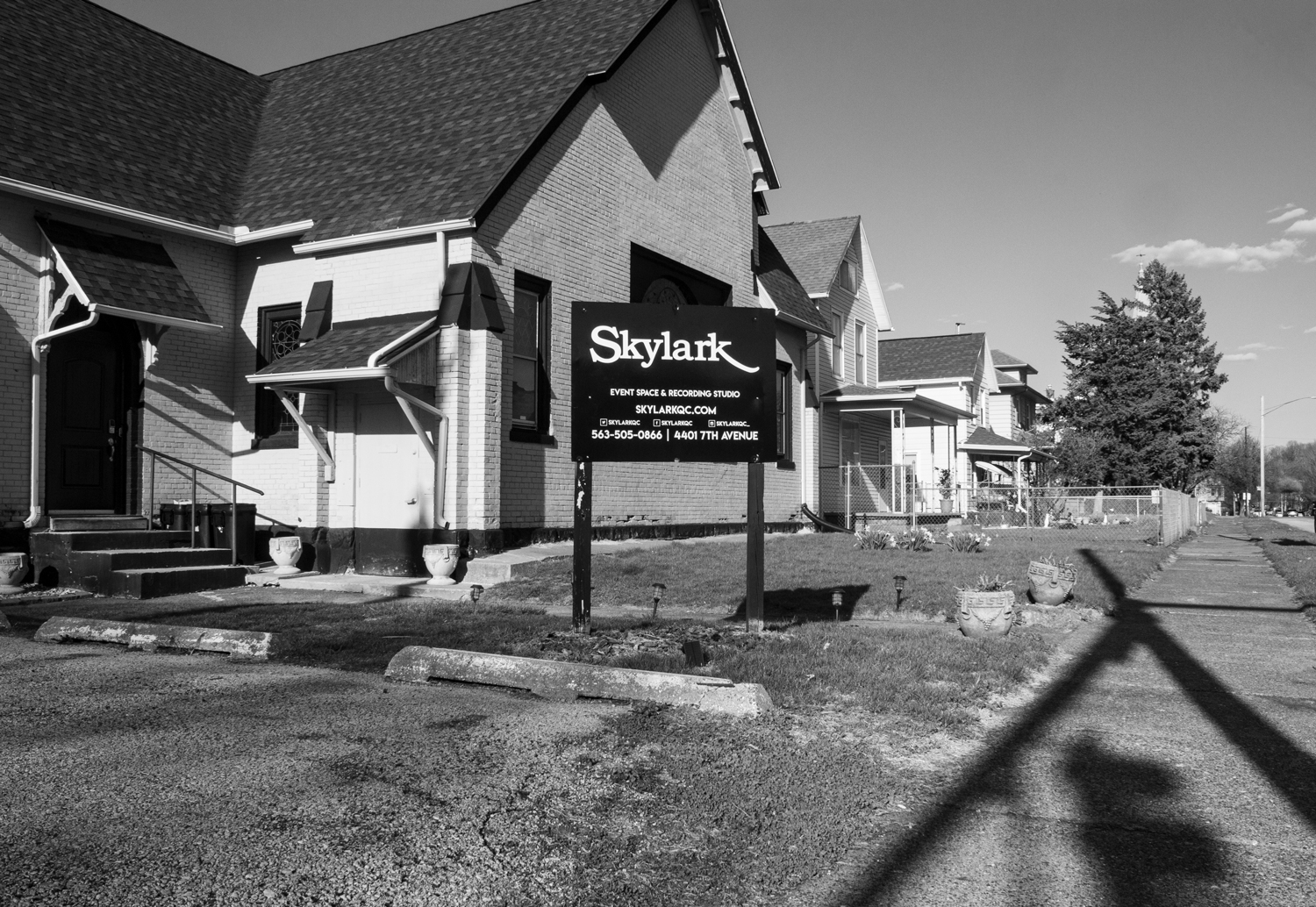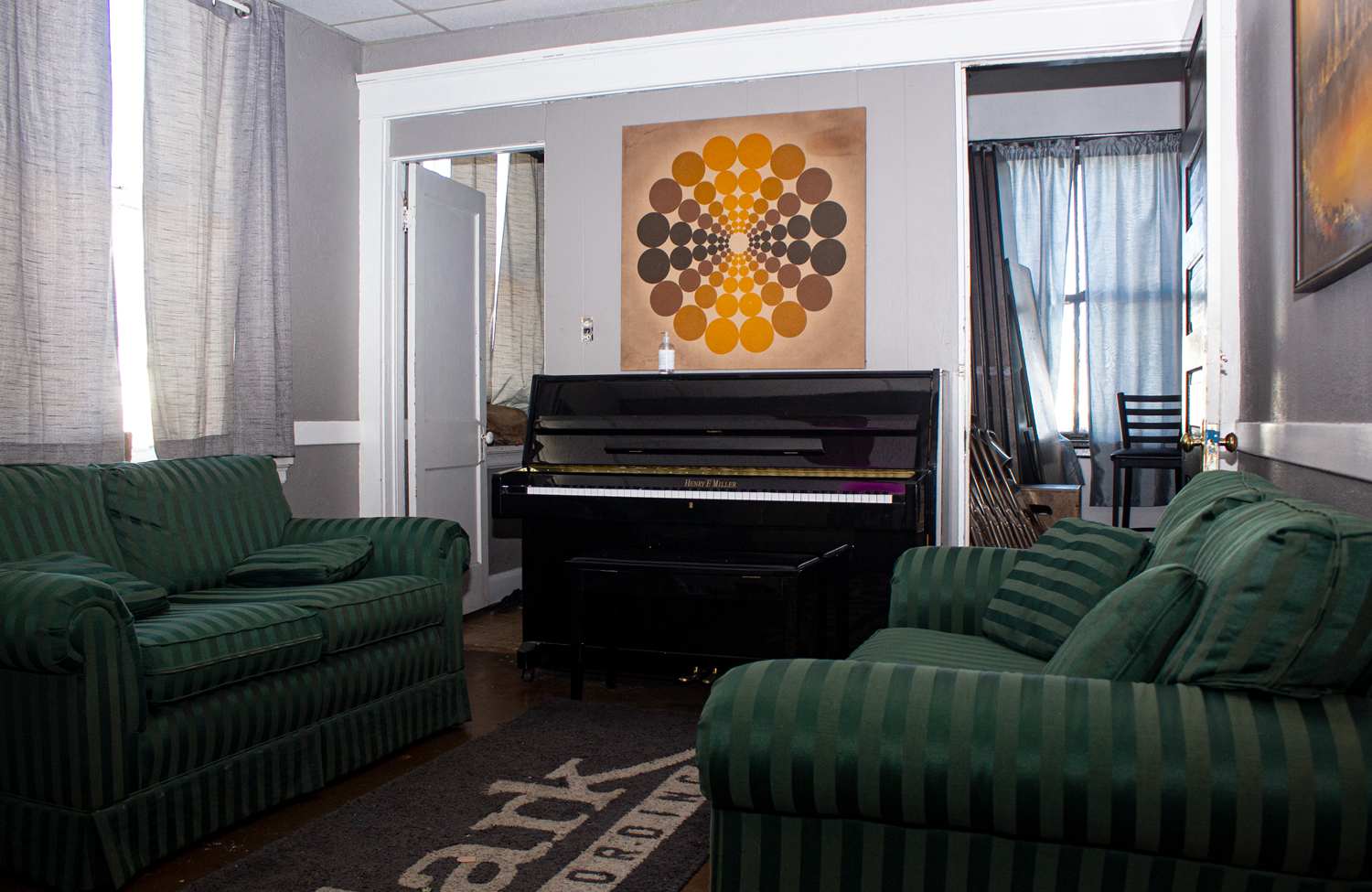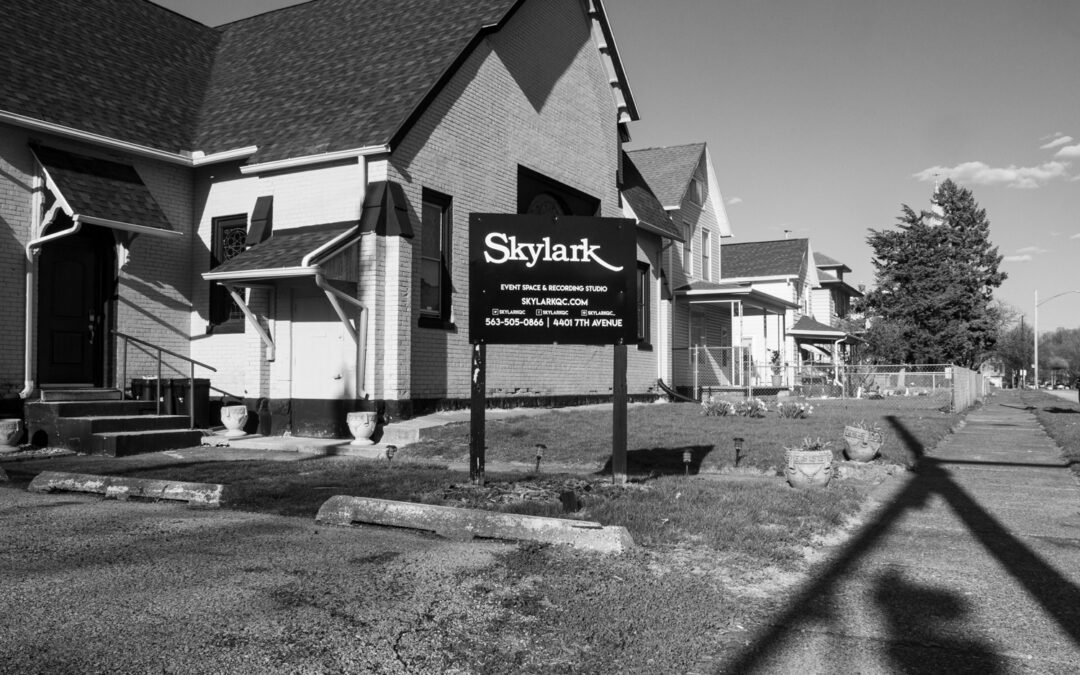Located along the one-way rush of 7th Ave in Rock Island, only a couple blocks from the Moline border, lies an old building that began as a church in the late 19th century, living several non-secular based roles, before once more becoming a place of worship prior to being taken over by the current operators, Skylark. As a photographer, I have always found myself drawn to the architecture of these spaces more than what was being preached about beyond the stained glass windows, and arching walls. The stained glass still situated within the walls brought on thoughts of where this building began, as fragments of color were painting themselves across the floor and onto the occupants of the space as the sun began settling down for the day. The sounds filling this place possess an undeniable passion, but the praise is now placed on personal creation over exterior exaltation. Skylark may have adjusted the building in ways seemingly foreign to past parishioners, however as those previous occupants saw the church, Skylark has become a true outlet, almost a beacon of the community. Extending beyond the recording scene, Skylark can be rented out as an event space, seeing “flea markets”, shows from both local and nationally touring acts, various art/comedy events, as well as private parties on a weekly basis, it is the recording studio side that brought me here for my first visit and was what originally brought Skylark to my attention well before the thought of creating monthly studio features was developed.
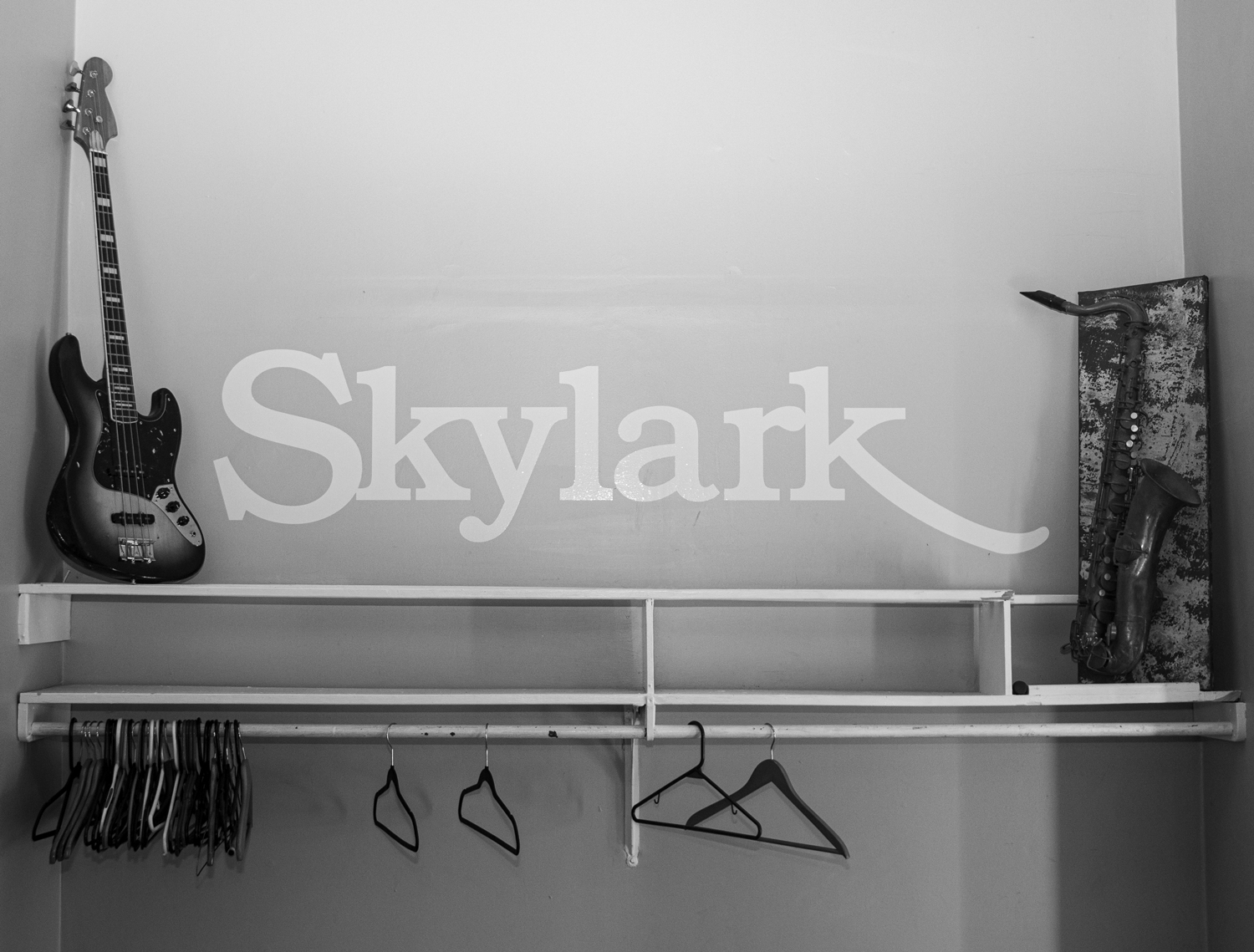
While the schedule at Skylark, and what is unfolding within these walls, is everchanging, a quick look at their event calendar makes it clear that slowing down isn’t really in their future. As an artist, I know how important staying busy can be, especially when attempting to keep progressing, and from my experience the creative scene tends to be an active one, seldom ceasing its motion. This active energy was more than present when I arrived to shoot around the studio. I walked into one session finishing up tracking direct from within the room where the mixing console and “production team” are housed, while concurrently the guys from Michael Moncada and Whiskey High were already setting up and running through takes as Justin Farley and a pair of assistants helped get everything plugged in and ready to record the full band “live” in the open space where crowds gather to watch shows; the same space which once would have housed the church’s congregation, or bar-goers after a shift at International Harvester. I moved around capturing the scene while the band got their sound dialed in, a drone weaved through the rooms getting video of the event, and a musician leaving the first session of the evening stopped in to hug and say hello to a friend in Whiskey High. It was a true intertwining of the arts convened, even if only momentarily, in this one room in Rock Island.
This building holds more stories than one could fit into a single lifetime, but it’s clear that Skylark, and all those involved with this studio/space are making their mark and making sure the history held in this “house of worship” continues to be built upon well into the 21st century.
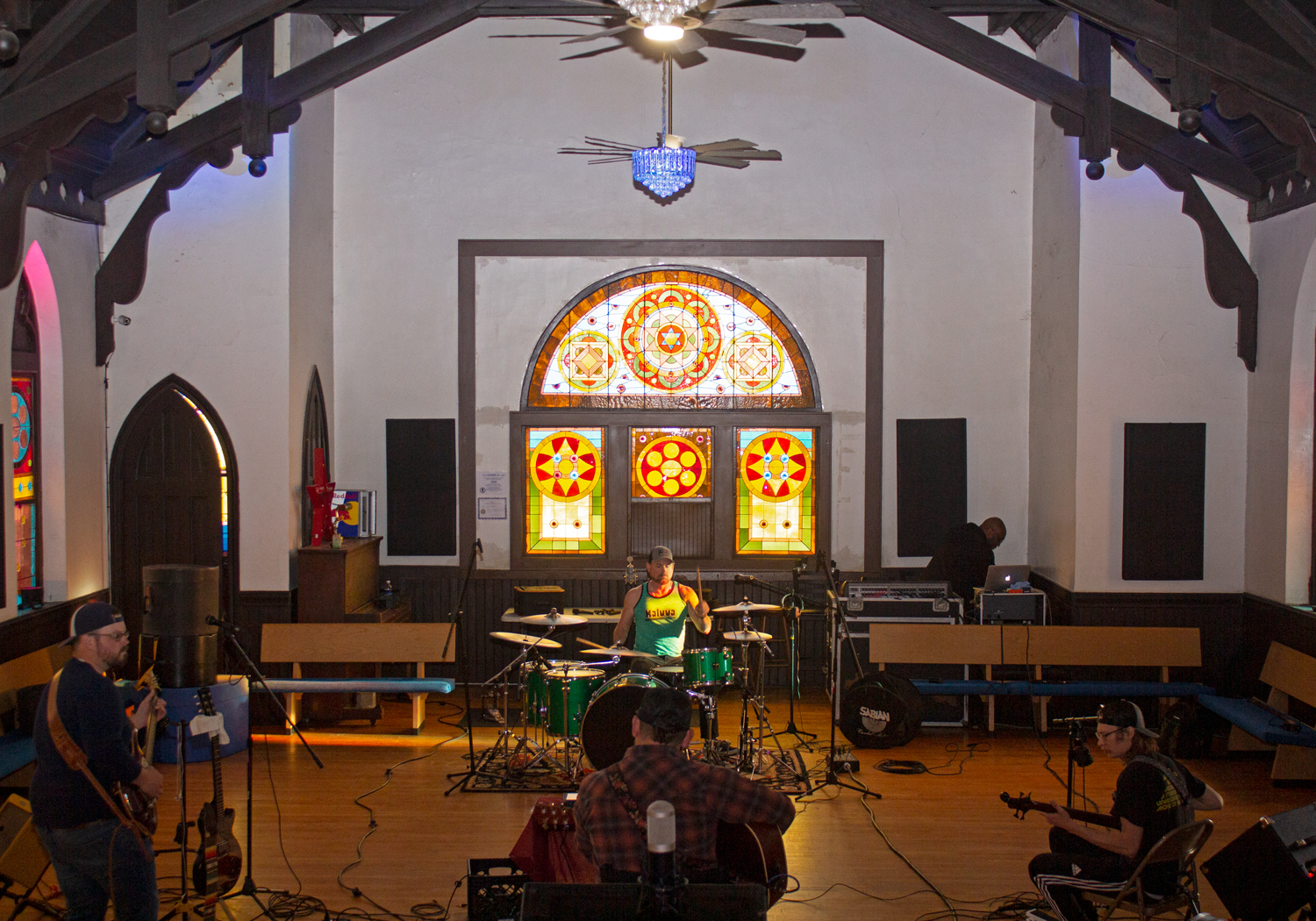
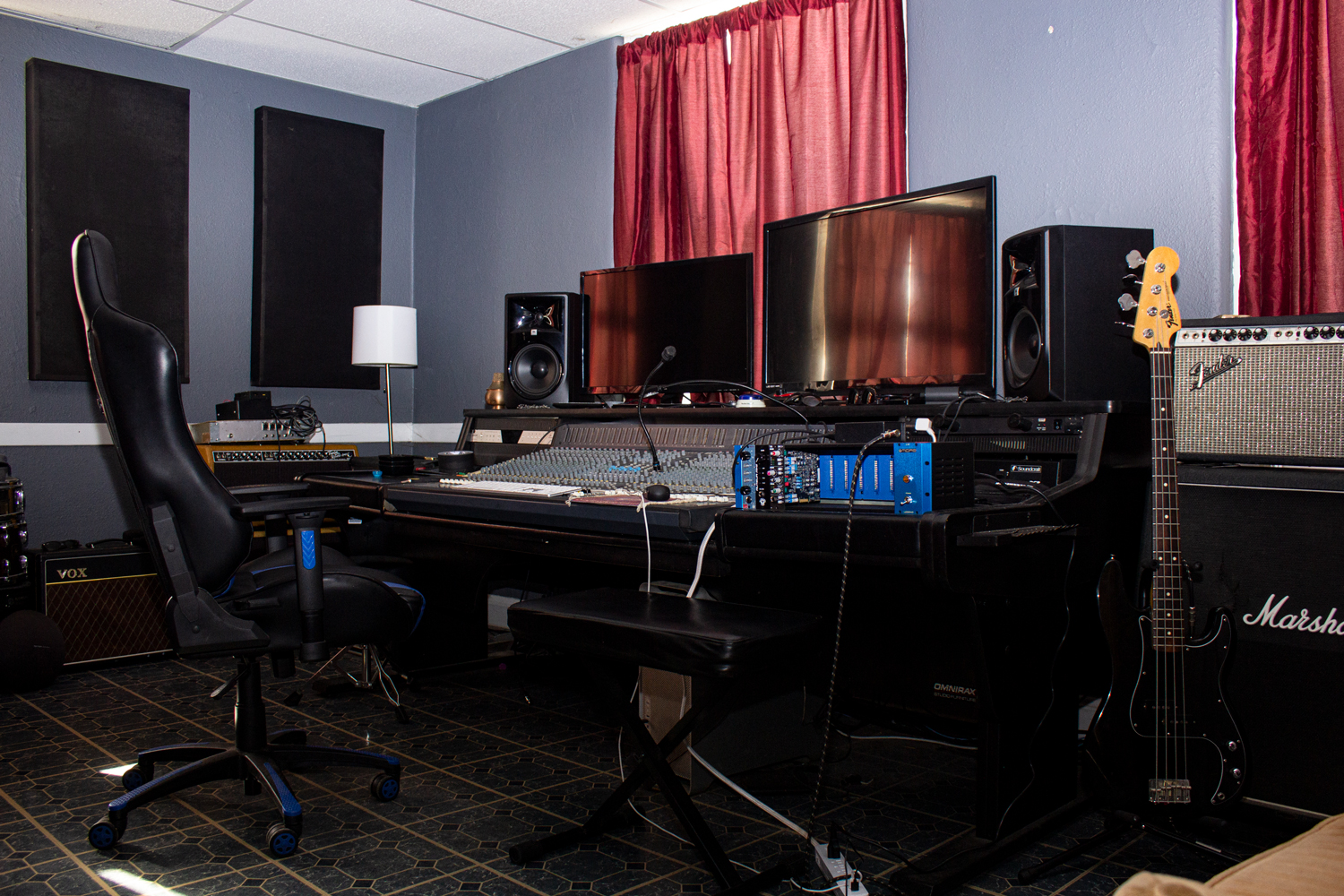
ECHO STUDIO OF THE MONTH:
SOCIAL MEDIA:
CONTACT:
Justin Farley – Owner, Lead Engineer
Scheduling: visit website.
Phone:
563 505-0866
Address:
4401 7th Avenue, Rock Island, Illinois. 61201
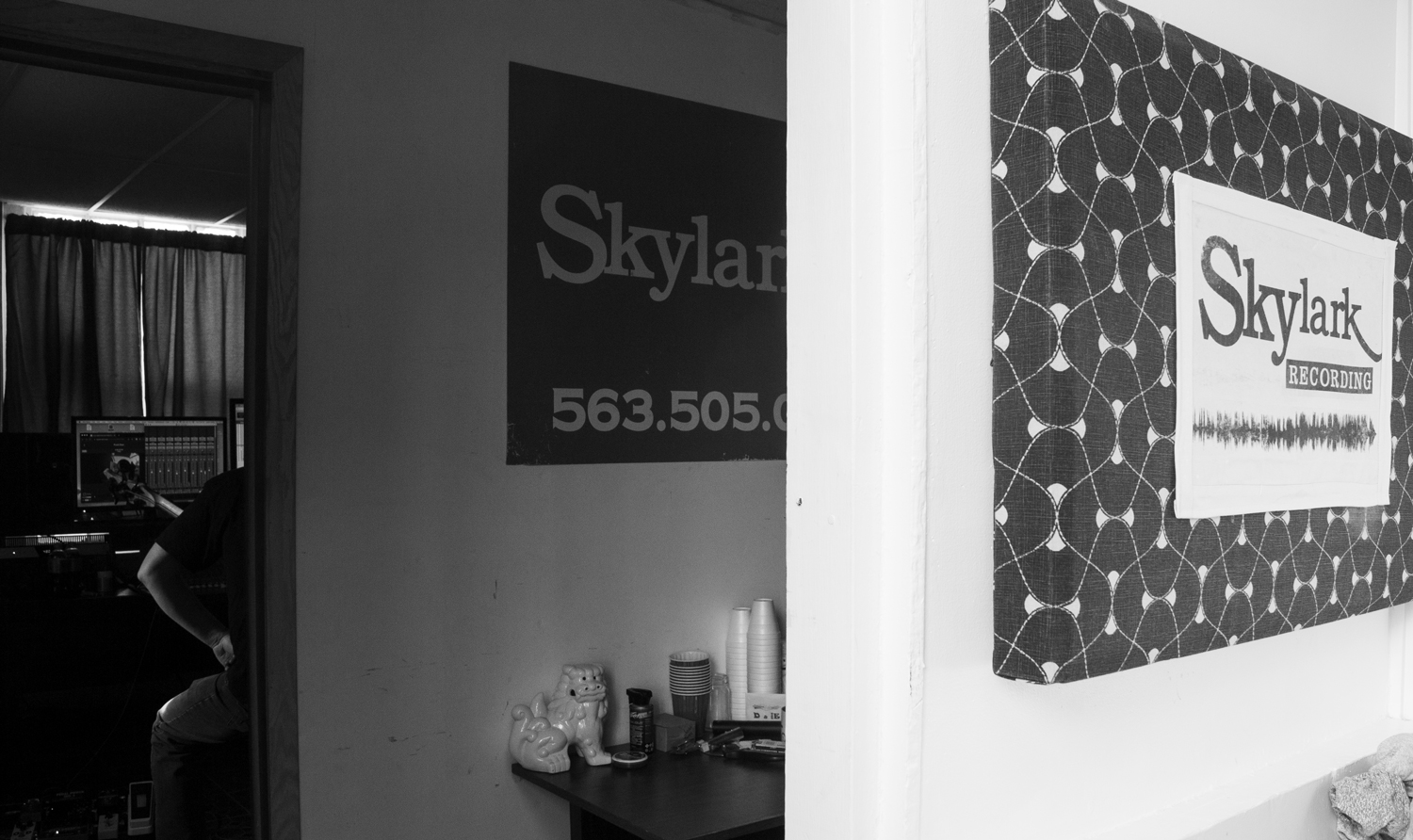
Skylark QC – Event space & recording studio | Recording local artist Michael Moncada & Whiskey High | All Photos Provided By: Matthew Terry
Matthew: How did you get into the music studio business? Were you (are you still) playing in any local bands in the area, or does your interest focus mostly on music production and not creating the music, so to speak?
Justin Farley/Skylark: I’ve always been a musician first. I started playing piano at age 3, then I was in school band 4th-12th grade (clarinet, 2 saxophones, drum line). I also picked up guitar/bass and a drum set around freshman year. After high school, I played in local bands eventually ending up in LA. After the band fizzled, I went to the Los Angeles Recording School. I finished the program and interned at a few studios and venues. A few years later I moved back to the QC and started running live sound while I built my studio. I started mixing shows at Ribco and then was the 1st sound engineer at Redstone Room and did all the shows for the first 6 years. After that, I was the primary engineer at Rascals for a few years. Every couple of years I’ll fill in with a band on drums, but I’m always making dumb riffs on guitar during my downtime. Mostly it’s just working on my engineering skills.
Matthew: Are there any specific genres or artists you’ve really enjoyed working with throughout your career, why so? Is there any specific style of music/musician that you believe your studio/production style excels at?
Farley: I am not a specialist in any single one; I can record and produce all genres. I attribute this to my musical background and all of the diverse acts that I’ve run sound for. There’s not an instrument or genre I haven’t worked with multiple times. In our little market, I believe that’s been key to getting work. Some days it’s blues, then Mexican folk music, then metal, then producing a radio/tv commercial or doing voice-overwork for a show like American Pickers. I’ve watched a lot of studios come and go since I opened up in 2007 and the common reason for them closing is not enough work in their particular genre of specialty.
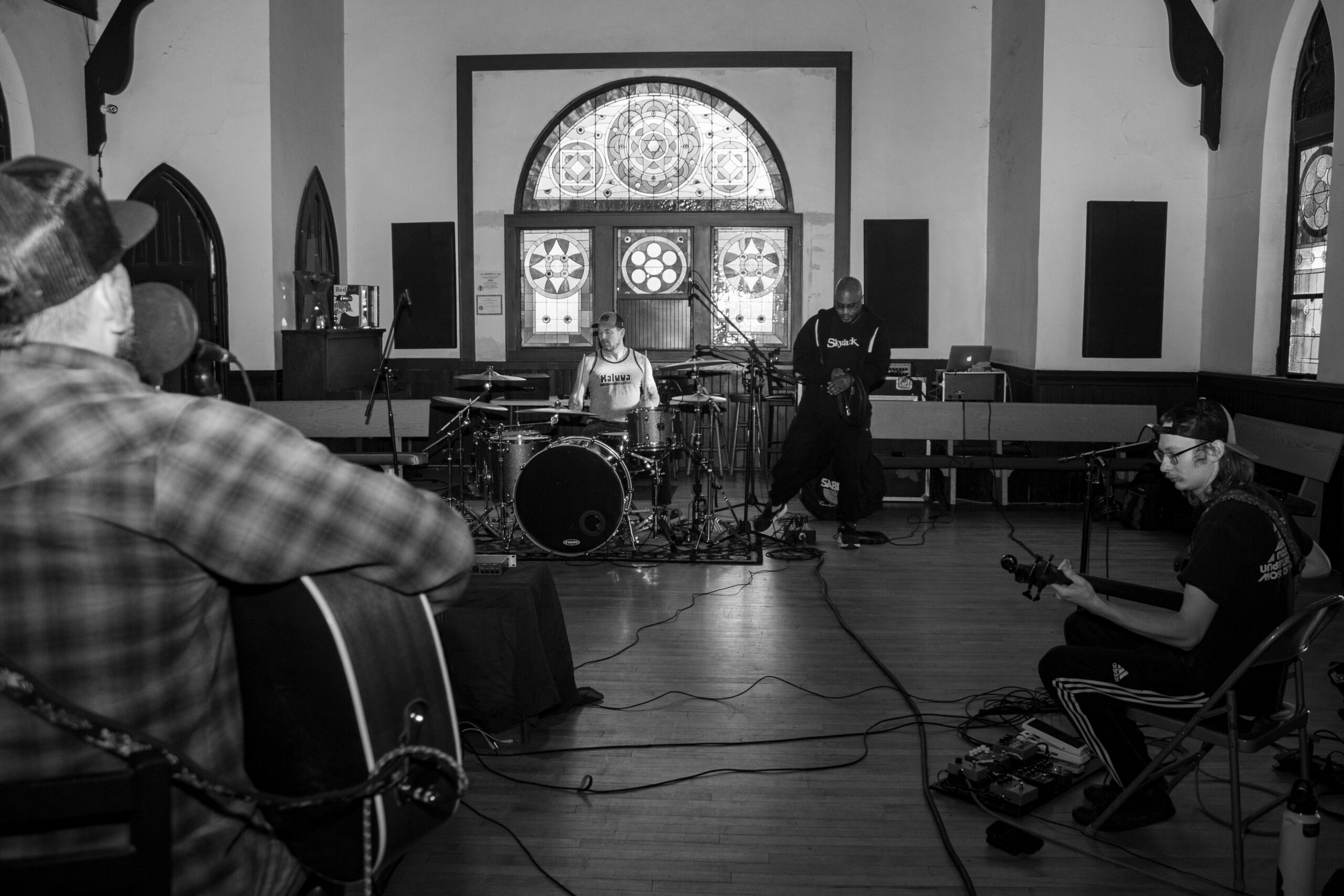
Matthew: That’s a great point. It’s important for all artists to be able to work across several genres/facets of their particular medium. Speaking of the artist, what is the best way for them to make sure their track is recorded and produced to the best quality when they come in for a session? Of course time/costs can play a major role, outside of practicing/having songs dialed in, are there any suggestions you have for an artist in preparation for time in the studio?
Farley: Trick question because the answer is definitely practice. Other than that, it’s making sure your instrument is studio ready. New strings, new drum heads, etc. if you’re singing, maybe don’t go to karaoke until the bar closes the night before a session.
Matthew: Let’s settle the debate: Which is the best digital audio workstation(daw)? If you don’t feel there is but a workstation to deem the best, is there one you like to use in particular? What is the most beneficial aspect of using this DAW?
Farley: That’s like asking which language is better. All DAWs have the same functions anymore. It’s whichever one you’re fluent on. My suggestion would be to pick a top 3 DAW and stick with it. It takes years to master one, but once you do it is easier to pick up others. I’m a Pro Tools user but I don’t think it’s an advantage or disadvantage. I’ve heard amazing music come from all DAWs.
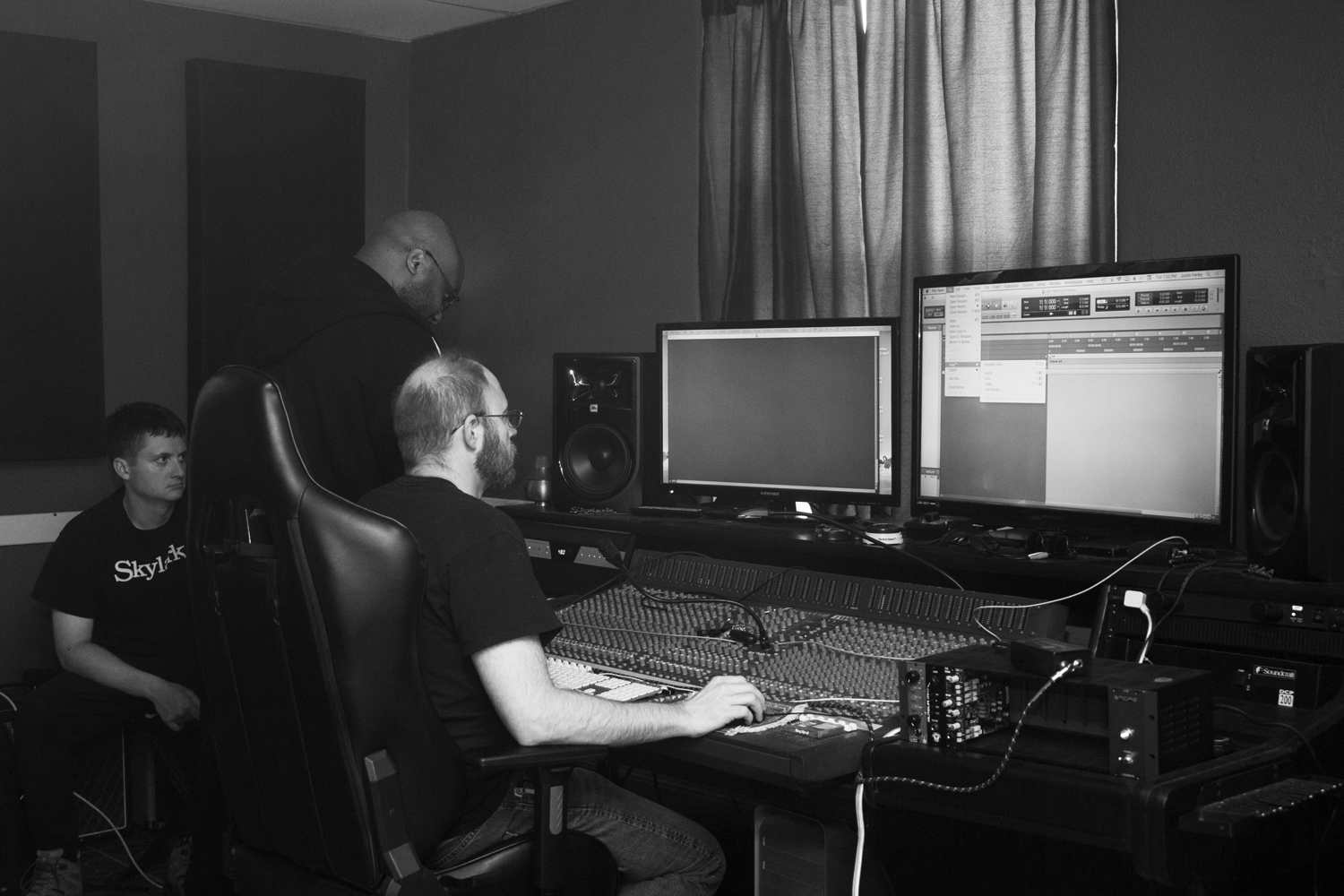
Matthew: With so much technology involved, what are your favorite pieces of gear made available to artists that use your studio? Are there any pieces of gear that make your studio even more unique and/or help the studio stand out?
Farley: My best pieces of gear are my ears. With good and well-trained ears you can work on anything. Back in the day before everyone had computers and access to plugins, a studio could boast a specific Mic or piece of rack gear but anymore the field is mostly leveled in that way. Experience and ears are my tools. Having a badass room to record in helps a ton.
Matthew: That makes a lot of sense, and I am sure the space itself helps, as it’s one of the most unique studios I’ve ever stepped into. We know artists will always attempt to make audio recordings in their own homes. Are these recordings something you can traditionally/commonly work with? If so, what’s the best way for them to do so? If not what causes the biggest issue with home recordings?
Farley: That’s the new wave. I get a lot of clients coming in just to get drums recorded because they record vocals and guitars at home. I’m here for it. I get excited when guys come in with pre recorded tracks and skeletons of their songs. It means they already have a vision for the final product and know what they need. Also to me, it means they care just a little more than the next guys.
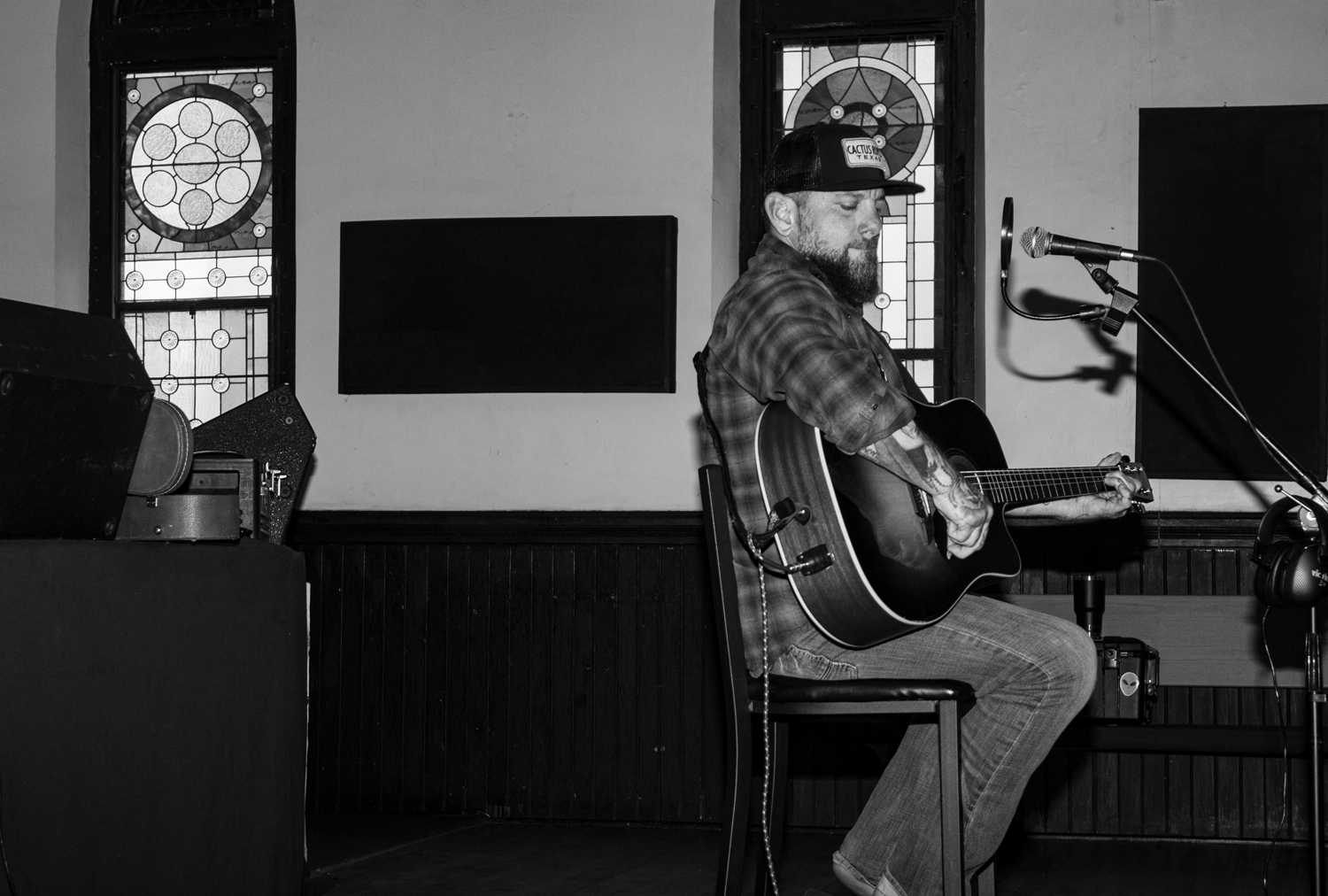
Matthew: What are some of the biggest hurdles you’ve faced as a music studio, either anticipated or otherwise, and what did you do to overcome these temporary blocks?
Farley: I moved out of my small office-sized studio and got into this beautiful old church in rock island 60 days before Covid happened. I had a lot of projects and concerts booked and then it was full stop until February of 2022. By far the hardest thing the studio has gone through. I even had a break-in and lost some equipment over lockdown. Luckily they didn’t steal my ears or experience.
Matthew: In closing, what music/musicians have you been hooked on recently? And are there any local artists you’ve worked with that we should be on the lookout for/more people should know?
Farley: I’m that guy that actually listens to everything. If I’ve been working on funk or metal all day, then I’m listening to classical music at home. If I’m doing Americana or blues in the studio all day, I’m listening to rap or EDM at home. So I’m into whatever is the polar opposite of what I’ve been doing at work all day. The common denominator is talented musicians. I learned long ago running sound that even if you don’t (yet) like the genre you’re working on, you might find that the bass player is killer or the drummer is a stud. I like listening to stuff that sounds too hard for me to play. I can move around and jam on many different instruments, so when I listen to music I instinctively put myself in the bass player’s shoes. Then I’ll imagine I’m the drummer and so on. I’ve always done this since I was a kid staying up to watch a band on SNL. What I really love is when I hear or see someone do stuff that I could never do and my soul just explodes with excitement and happiness.
Skylark QC | Photos By: Matthew Terry

